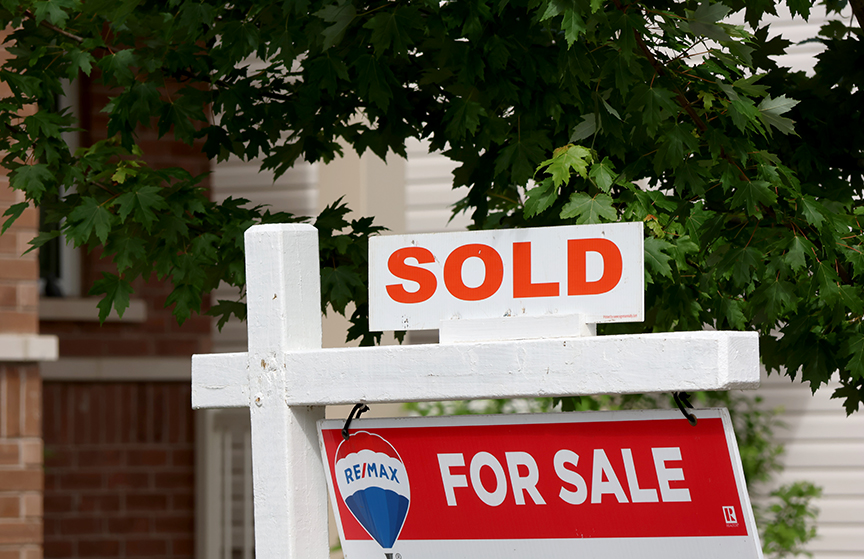WELLINGTON COUNTY – A government initiative aimed at increasing the supply of affordable housing may not be enough incentive for developers, with the local home builders’ association saying costs to build the homes exceeds the affordable prices set by the province.
At the beginning of June, the Ontario government released a bulletin that sets out affordable market-based and income-based thresholds for ownership by municipality.
These thresholds must be met in order for developers to receive exemptions and discounts from municipal development charges for those residential units.
Across Wellington, the prices vary from $334,100 for Wellington North to as high as $596,400 in Puslinch.
In Guelph the threshold is set at $398,800; in Centre Wellington it’s $427,600.
Construction costs
Guelph and District Home Builders’ Association executive director Melissa Jonker said many of the prices are less than what it costs to build.
“Building an 1,800-square-foot single-detached home in Guelph and the surrounding area would cost around $450,000,” Jonker stated in an email to the Advertiser.
She went on to explain this is only the starting cost of construction and doesn’t include the cost of land, taxes or other fees.
“When you include land costs, this is significantly higher than the province’s affordable home benchmark of $398,800,” she said, referencing the Guelph threshold.
‘Affordable’ calculation
The “affordable” purchase prices are based on two calculations: a price that would result in annual accommodation costs equal to 30 per cent of the gross annual income for a household at the 60th percentile of income distribution in the municipality; or a price that is 90% of the average purchase price of a unit of the same type in the municipality.
The lesser of these two options is set as the “affordable” price in the bulletin.
“Data used in developing the bulletin comes from Statistics Canada, Bank of Canada, Canada Mortgage and Housing Corporation and others,” stated an email from the Ministry of Municipal Affairs and Housing (MMAH) in response to an Advertiser inquiry.
The message further explained prices are in 2023 dollars, with income-based prices derived from household income from the 2021 Census of Population in the local municipality, adjusted for inflation.
“The market-based price is a ministry estimate of 2023 prices based on an adjusted two-year average of resale prices in local municipalities,” it stated.
It would appear that in all municipalities across the county and in Guelph, the income-based price is lower than the market-based price, as the prices are uniform across the board for all types of housing: single-detached, semi-detached, townhouse and condominium.
In the Town of Minto, the affordable price is $362,900. In Mapleton it is $456,300, and in both Erin and Guelph/Eramosa, it is $542,500.
Rising prices
Asked for additional comment on the high cost of construction, Jonker said costs almost doubled in the past five years.
“Additionally, the current interest rate environment has significantly raised carrying costs,” she said.
“Developers would need a different economic climate or additional incentives for affordable units to be financed. A builder cannot afford to build homes at a loss and remain in business.”
Habitat for Humanity Guelph Wellington president and CEO Steve Howard said this perspective from private developers is not unreasonable.
Development charges
As a not-for-profit organization, Habitat for Humanity is exempt from development charges, and Howard said without those charges, the per-unit cost for its current projects in Guelph and Fergus is in line with the province’s affordable pricing.
“In other words, the developers reference to ‘loss’ might better refer to an absence of profit margin,” Howard stated in an email.
“Overall I think the protests are reasonable from the perspective of private developers who might wish to build affordable housing.
“Which opens the bigger questions: What should governments and regulators be considering to promote affordable housing?
“What portion of projects should be ‘affordable’? What should happen now to move this forward?”
Twenty-five years
In addition to meeting the initial affordable pricing thresholds, homebuilders would also need to promise the units will remain affordable for a period of 25 years in order to receive exemptions and discounts from development-related charges.
“The homebuilder would need to enter into an agreement with the municipality to keep the unit affordable for 25 years,” the MMAH email stated.
“This agreement may contain additional details about how the unit would be kept affordable and may be registered against the land in which it applies to secure this affordability for the 25-year period.”



